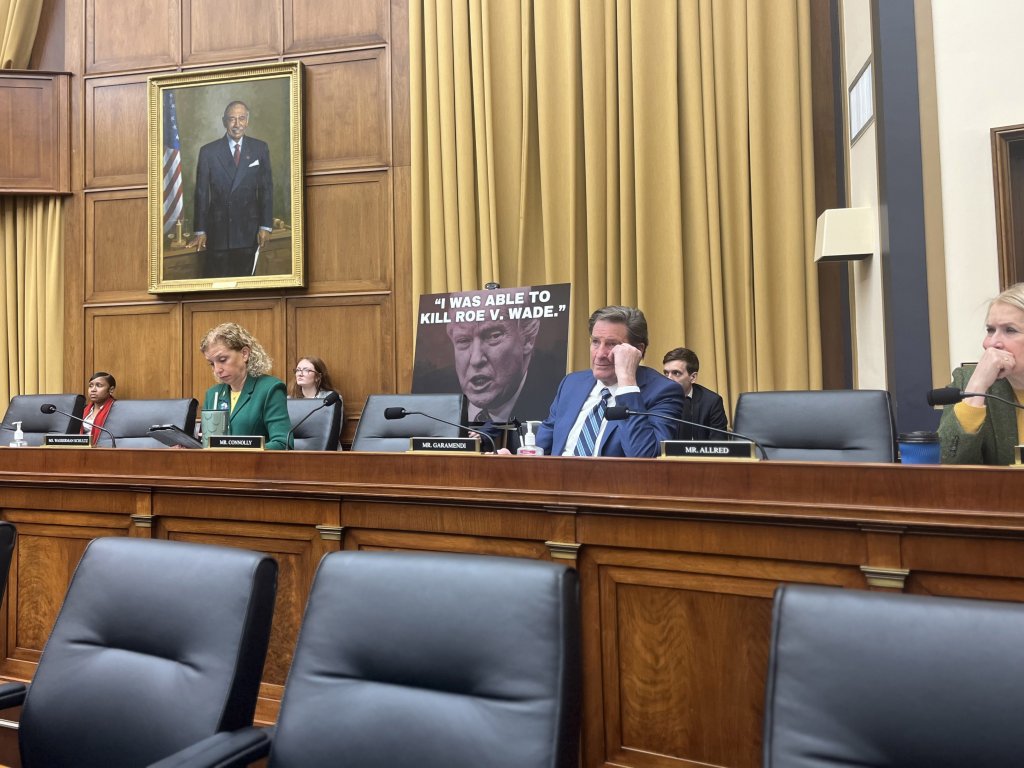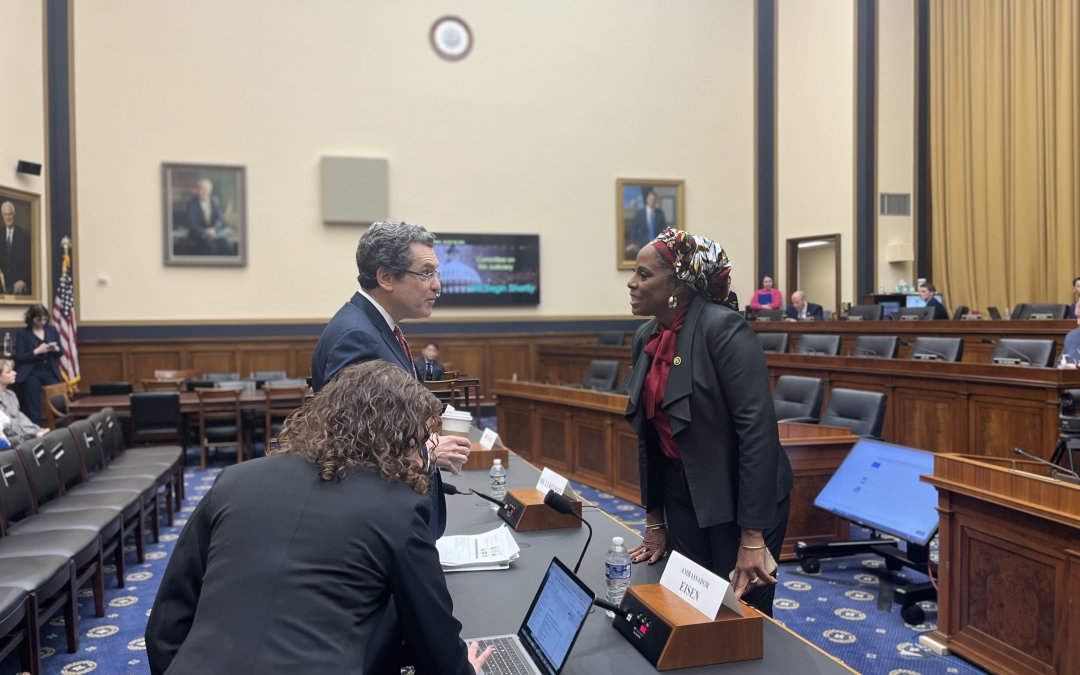WASHINGTON – Lawmakers were divided Tuesday over the threat artificial intelligence poses to First Amendment rights, with Republicans asserting that the federal government is using the technology to censor free speech and Democrats calling attention to misinformation and risks to democracy if Donald Trump is reelected.
House Republicans on the Select Subcommittee on the Weaponization of the Federal Government attacked government agencies such as the National Science Foundation, saying they are using grant money to fund AI projects that support disinformation research but that this could be used to restrict conservative political opinions.
“They’re going to put your tax dollars into developing software to censor your speech,” Chairman Jim Jordan (R-Ohio) said. “AI, which can censor in real time and at scale, should scare us all.”
The hearing stood in contrast to last week’s proceedings of the Senate Judiciary Committee, when bipartisan members grilled several big tech CEOs on the threats their companies pose to child sexual exploitation.
The select subcommittee was ostensibly created in early 2023 for checks and balances, acting as a watchdog of the executive branch. However, critics say the majority of Republicans that make up the committee ignore the very weaponization against which they seek to safeguard, turning a blind eye to misuse of power under the Trump administration.
At the subcommittee’s sixth hearing, Democratic members repeatedly questioned its very function. Ranking member Stacey Plaskett (D-Virgin Islands) called the proceedings yet “another iteration” of the same lines of questioning.
“My Republican colleagues don’t really want us to work together,” Plaskett said. “This is about speaking to Fox News – this is not about solving problems for the American people.”
Rep. Sylvia Garcia (D-Texas) named immigration as an issue continuously weaponized by the GOP. She criticized Republicans for putting personal politics above finding bipartisan solutions to real issues.
“This is straight out of a dictator’s playbook,” Garcia said of GOP immigration policies.
Communication channels between Democratic and Republican committee members are virtually non-existent, Plaskett told the Medill News Service in an interview. In many instances, the ranking member said she isn’t even made aware of the names of the witnesses ahead of a hearing, also noting the lack of diversity in discussion topics.
“There are so many other issues the American people might be interested in,” Plaskett said, adding that the committee could benefit from improved “compromise and engagement.”
Norman Eisen, senior fellow in governance studies at the Brookings Institution and former ambassador to the Czech Republic, was called on by Democrats to testify about the dangers of ignoring what he called the “genuine” weaponization of the federal government in favor of Republican-backed efforts to sow partisan division.
“I know everyone in this room agrees on the central importance of the protection of the First Amendment,” Eisen told lawmakers. “We do no favors to the First Amendment when we cry wolf.”
Rep. Dan Goldman (D-N.Y.) echoed Eisen’s frustrations with Republicans’ misunderstanding of free speech protections. Balancing the First Amendment and the issues of free and fair elections is a “complicated situation,” he said, but it should not be used to promote political antics.
“What we should be focusing on is Chairman Jordan abusing the power of his committee to subpoena state prosecutors in an effort to undermine their prosecutions of Donald Trump,” Goldman said. “That is a true weaponization of the federal government.”

“I was able to kill Roe v. Wade.” Donald Trump took full responsibility for the reversal of a landmark Supreme Court decision in a statement he made last year. (Simone Garber/MNS)
Many members expressed concern over how misinformation could affect the outcome of the 2024 presidential election. Rep. Debbie Wasserman Schultz (D-Fla.) warned what a second Trump presidency could mean for women’s reproductive health, quoting a statement in which the former president claimed full responsibility for the reversal of Roe v. Wade in 2022.
“The White House should never be turned into a workshop to grind personal and political grievances,” Wasserman Schultz warned. “Trump did that during his last term and promises to do it again.”



